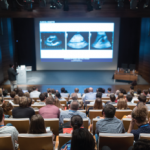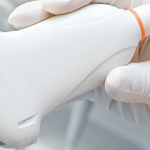There are many barriers to the utilization of ultrasound by U.S. rheumatologists. Responding to member interest, the board established a Musculoskeletal Ultrasound Task Force, charged with developing a business plan for a musculoskeletal ultrasound certification program. This group, chaired by Ralf Thiele, MD, assistant professor of medicine, allergy/immunology, and rheumatology at the University of Rochester Medical Center in Rochester, N.Y., did a job task analysis, market research, and an environmental scan. Its work led to specific recommendations for a musculoskeletal ultrasound certification program that should lead to recognition by external entities. The task force’s recommendations have now been adopted by the board. The costs involved are not inconsequential, but combined with the courses offered by the ACR and the “Train-the-Trainers” musculoskeletal ultrasonography program designed to train ultrasound champions at each of the fellowship programs, widespread use of this technology will likely become more prevalent in U.S. rheumatology practices. Because it is difficult to teach an old dog new tricks, I doubt that I will learn to do the procedure, but I would like my fellows to have the opportunity to be trained.
The Committee on Training and Workforce (COTW), chaired by Abby Abelson, MD, chair of the department of rheumatic and immunologic diseases at the Cleveland Clinic, has witnessed significant growth among training programs in the number of rheumatology fellows. Some of this growth stems from the ACR Research and Education Foundation’s direct support. The COTW helps fellowship programs stay abreast of the changing requirements for training. Abby can rightly be described as a champion of diversity. She would foster further gender and ethnic diversification in our specialty.
If you want to contribute your time and energy to your patient’s cause, to the care of rheumatic disease patients, and to your profession, consider volunteering for the ACR. The ACR needs you.
A COTW group led by Marcy Bolster, MD, professor of medicine at the Medical University of South Carolina in Charleston, has developed a standardized rheumatology curriculum that could be used to teach rheumatology to all internal medicine residents. It should be available soon to all training programs. Another group, led by John FitzGerald MD, MBA, MPH, PhD, assistant professor of medicine at the University of California, Los Angeles, has proactively looked at improving access to rheumatologists. Dr. FitzGerald’s subcommittee has systematically analyzed the geographic distribution of rheumatologists, identifying underserved areas throughout the U.S. The next step will be to develop additional and alternative strategies to meet those identified access needs. John not only serves on this committee, but chairs the gout guideline development workgroup, sees patients, and does clinical research at UCLA.


